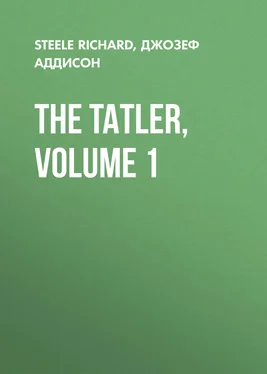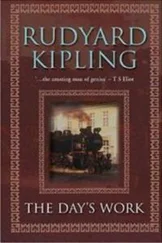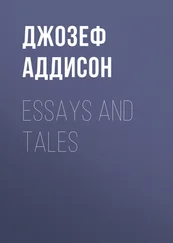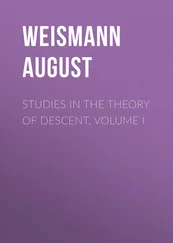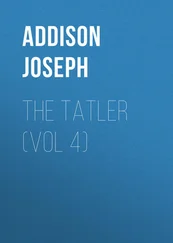Джозеф Аддисон - The Tatler, Volume 1
Здесь есть возможность читать онлайн «Джозеф Аддисон - The Tatler, Volume 1» — ознакомительный отрывок электронной книги совершенно бесплатно, а после прочтения отрывка купить полную версию. В некоторых случаях можно слушать аудио, скачать через торрент в формате fb2 и присутствует краткое содержание. Жанр: foreign_prose, foreign_antique, на английском языке. Описание произведения, (предисловие) а так же отзывы посетителей доступны на портале библиотеки ЛибКат.
- Название:The Tatler, Volume 1
- Автор:
- Жанр:
- Год:неизвестен
- ISBN:нет данных
- Рейтинг книги:4 / 5. Голосов: 1
-
Избранное:Добавить в избранное
- Отзывы:
-
Ваша оценка:
- 80
- 1
- 2
- 3
- 4
- 5
The Tatler, Volume 1: краткое содержание, описание и аннотация
Предлагаем к чтению аннотацию, описание, краткое содержание или предисловие (зависит от того, что написал сам автор книги «The Tatler, Volume 1»). Если вы не нашли необходимую информацию о книге — напишите в комментариях, мы постараемся отыскать её.
The Tatler, Volume 1 — читать онлайн ознакомительный отрывок
Ниже представлен текст книги, разбитый по страницам. Система сохранения места последней прочитанной страницы, позволяет с удобством читать онлайн бесплатно книгу «The Tatler, Volume 1», без необходимости каждый раз заново искать на чём Вы остановились. Поставьте закладку, и сможете в любой момент перейти на страницу, на которой закончили чтение.
Интервал:
Закладка:
56
These were the days on which the post left London for the different parts of the country.
57
White's Chocolate-house, five doors from the bottom of the west side of St. James's Street, was established in 1698. It was burnt on April 28, 1733, while kept by Mr. Arthur. Plate VI. of Hogarth's "Rake's Progress" depicts gamblers engrossed in play in a room in this house during the fire; see also Plate IV. Swift gives it a bad character in his "Essay on Modern Education;" it had a strong character for gambling (Timbs's "Clubs and Club Life in London," where, at p. 48, there is a sketch of White's from an old drawing). The house became a private club, as we now have it, about 1736.
58
Will's Coffee-house, named after Will Urwin, its proprietor, was the corner house on the north side of Russell Street, Covent Garden, at the end of Bow Street. The present house, 21 Russell Street, is probably part of the old building. Will's was ceasing to be the resort of the wits in 1709; it was in its glory at the close of the seventeenth century. The wits' room, where Dryden presided, was on the first floor.
59
The Grecian, in Devereux Court in the Strand, was probably the most ancient coffee-house in or about London. In 1652 an English Turkey merchant brought home with him a Greek servant, who first opened a house for making and selling coffee. This man's name was Constantine, and his house was much resorted to by lawyers, Greek scholars, and Members of the Royal Society. (See Thoresby's Diary, i. 111, 117.) Foote and Goldsmith afterwards frequented it. In Dr. King's "Anecdotes" there is a story of two gentlemen friends who disputed at the Grecian Coffee-house about the accent of a Greek word to such a length that they went out into Devereux Court and drew swords, when one of them was killed on the spot.
60
The St. James's Coffee-house was the last house but one on the S.W. corner of St. James's Street. It was frequented by Whig statesmen, and was closed about 1806. Swift and Steele were at a supper given by the keeper on the 19th November, 1710.
61
Cf. the Spectator , No. 31: "Laying down my penny upon the bar."
62
Wine.
63
A waiter. See Nos. 10, 26.
64
This introduction was repeated in Nos. 2and 3of the original issue.
65
"The reader is desired to take notice of the article from this place from time to time, for I design to be very exact in the progress this unhappy gentleman makes, which may be of great instruction to all who actually are, or who ever shall be, in love." (Original folio.) For Viscount Hinchinbroke ("Cynthio"), see No. 5.
66
April 7, 1709. Cibber acknowledges that Steele did the stage very considerable service by the papers on the theatre in the Tatler .
67
For further particulars of Thomas Betterton (1635-1710), see Nos. 71 and 167. Cibber says: "I never heard a line in tragedy come from Betterton wherein my judgment, my ear and my imagination were not fully satisfied.... The person of this excellent actor was suitable to his voice, more manly than sweet, not exceeding the middle stature, inclining to be corpulent; of a serious and penetrating aspect; his limbs nearer the athletic than the delicate proportion; yet, however formed, there arose from the harmony of the whole a commanding mien of majesty."
68
By Congreve, 1695.
69
Mrs. Elizabeth Barry on this occasion spoke an epilogue, written by Rowe. She was the daughter of Edward Barry, barrister, whose fortunes were ruined by his attachment to Charles I. Tony Aston, in his "Supplement to Cibber's Apology," says she was woman to Lady Shelton, of Norfolk, his godmother; and Curll tells us that she was early taken under the protection of Lady Davenant. She was certainly on the stage in 1673. At her first appearance there was so little hope of her success, that at the end of the season she was discharged [from] the theatre. It is probable that at this time she became acquainted with Lord Rochester, who took her under his protection, and gave her instructions in her theatrical performances. By his interest she seems to have been restored to the stage, and, improving daily in her profession, she soon eclipsed all her competitors, and in the part of Monimia in "The Orphan" established her reputation, which was enhanced by her performance as Belvidera in "Venice Preserved," and as Isabella in "The Fatal Marriage." "In characters of greatness," says Cibber, "Mrs. Barry had a presence of elevated dignity, her mien and motion superb, and gracefully majestic; her voice full, clear, and strong, so that no violence of passion could be too much for her, and when distress or tenderness possessed her she subsided into the most affecting melody and softness. In the art of exciting pity she had a power beyond all the actresses I have yet seen, or what your imagination can conceive. In scenes of anger, defiance, or resentment, while she was impetuous and terrible, she poured out the sentiment with an enchanting harmony.... In tragedy she was solemn and august, in comedy alert, easy, and genteel, pleasant in her face and action, filling the stage with a variety of gesture. She could neither sing nor dance, no not in a country dance. She adhered to Betterton in all the revolutions of the theatre, which she quitted about 1707, on account of ill-health." She returned, however, for one night with Mrs. Bracegirdle, April 7, 1709, and performed Mrs. Frail in "Love for Love" for Betterton's benefit. She died at Acton in 1713. Mrs. Barry, Mrs. Bracegirdle, Mr. Betterton, and Mr. Varbriggen were sworn as Comedians in Ordinary to her Majesty, 30th Oct., 2 Anne (1703). On the 3rd March, 1692, Mrs. Barry received £25 for acting in "The Orphan" before their Majesties, and on the 10th June, 1693, £25 for Caius Marius. (Lord Chamberlain's Records, Warrant Books, No. 20, p. 151; No. 18, pp. 30, 242.)
70
Mrs. Anne Bracegirdle was the daughter of Justinian Bracegirdle, of Northamptonshire. By the imprudence of her father, who ruined himself by becoming surety for some friends, she was early left to the care of Betterton and his wife, whose attentions to her she always acknowledged to be truly paternal. By them she was first introduced to the stage, and, while very young, performed the page in "The Orphan." Increasing in years, and in ability, she became the favourite performer of the times. Cibber describes her in these terms: "Mrs. Bracegirdle was now but just blooming in her maturity; her reputation, as an actress, gradually rising with that of her person; never any woman was in such general favour of her spectators, which, to the last scene of her dramatic life, she maintained by not being unguarded in her private character. This discretion contributed not a little to make her the Cara , the darling of the theatre: for it will be no extravagant thing to say scarce an audience saw her that were less than half of them lovers, without a suspected favourite among them: and though she might be said to have been the universal passion and under the highest temptations, her constancy in resisting them served but to increase the number of her admirers. And this perhaps you will more easily believe, when I extend not my encomiums on her person beyond a sincerity that can be suspected; for she had no greater claim to beauty than what the most desirable brunette might pretend to. But her youth and lively aspect threw out such a glow of health and cheerfulness, that, on the stage, few spectators that were not past it, could behold her without desire. There were two very different characters in which she acquitted herself with uncommon applause: if anything could excuse that desperate extravagance of love, that almost frantic passion of Lee's Alexander the Great, it must have been when Mrs. Bracegirdle was his Statira: as when she acted Millamant, all the faults, follies, and affectation of that agreeable tyrant were venially melted down into so many charms and attractions of a conscious beauty." In the theatrical disputes of the times, she adhered to her benefactor Betterton, and continued to perform with applause until 1707, when, on the preference being given to Mrs. Oldfield in a contention between that actress and Mrs. Bracegirdle, she left the stage, except for one night, when she returned with Mrs. Barry to the theatre, and performed Angelica for Betterton's benefit (the performance described in this number). She died in 1748.
Читать дальшеИнтервал:
Закладка:
Похожие книги на «The Tatler, Volume 1»
Представляем Вашему вниманию похожие книги на «The Tatler, Volume 1» списком для выбора. Мы отобрали схожую по названию и смыслу литературу в надежде предоставить читателям больше вариантов отыскать новые, интересные, ещё непрочитанные произведения.
Обсуждение, отзывы о книге «The Tatler, Volume 1» и просто собственные мнения читателей. Оставьте ваши комментарии, напишите, что Вы думаете о произведении, его смысле или главных героях. Укажите что конкретно понравилось, а что нет, и почему Вы так считаете.
